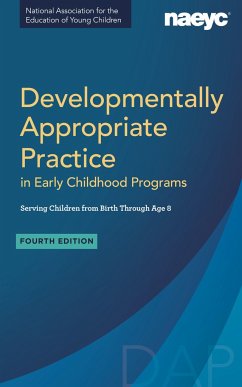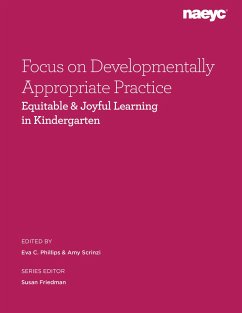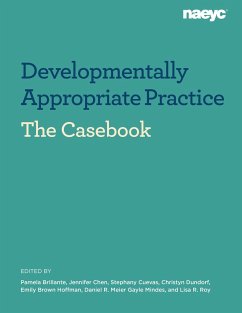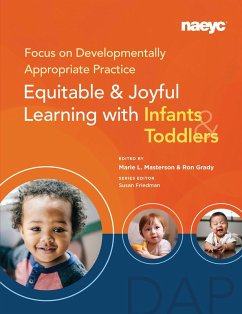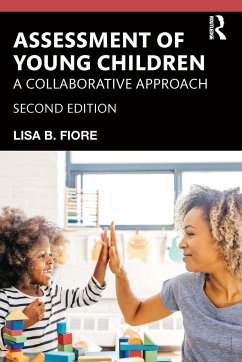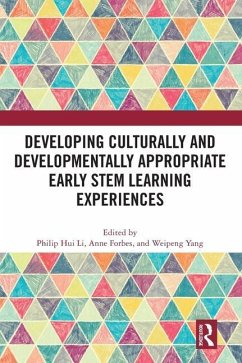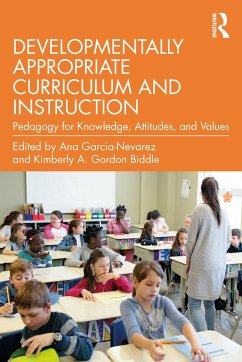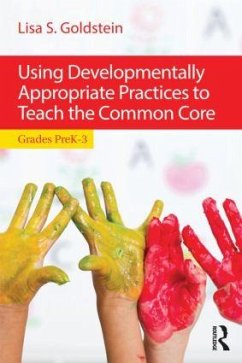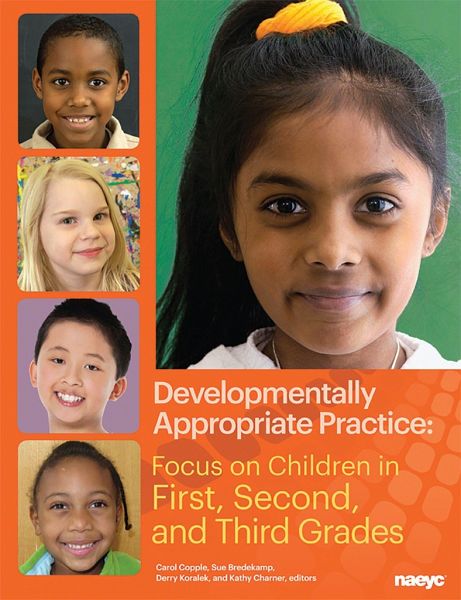
Sue Bredekamp
Broschiertes Buch
Developmentally Appropriate Practice
Versandkostenfrei!
Versandfertig in 2-4 Wochen

PAYBACK Punkte
22 °P sammeln!




Explains developmentally appropriate practice (DAP) so teachers can apply DAP in their work with children in first, second, and third grades. Chapters include: What Is Developmentally Appropriate Practice?; A brief introduction to the main ideas of DAP; Teaching Children in First, Second, and Third Grades; Connecting DAP to excellent teaching; An Overview of Development in the Primary Grades.
Carol Copple is a highly respected early childhood education author, educator, and consultant. For 16 years she served as a senior staff member at NAEYC, and her responsibilities included directing the books program. She has taught at Louisiana State University and the New School for Social Research, and she codeveloped and directed a research-based model for preschool education at the Educational Testing Service. With Sue Bredekamp, Carol is coeditor of Developmentally Appropriate Practice in Early Childhood Programs (1997; 2009). Among her other books are Learning to Read and Write: Developmentally Appropriate Practices for Young Children (NAEYC); Growing Minds: Building Strong Cognitive Foundations in Early Childhood (NAEYC); and Educating the Young Thinker: Classroom Strategies for Cognitive Growth (Lawrence Erlbaum). She received her doctorate from Cornell University. Sue Bredekamp is an early childhood education specialist from Washington, DC. She serves as a consultant on developmentally appropriate practice, curriculum, teaching, and professional development for many state and national organizations, including NAEYC, the Council for Professional Recognition, Head Start, and Sesame Workshop. From 1981 to 1998, she was director of accreditation and professional development for NAEYC. Sue is the primary author of the 1987 edition of Developmentally Appropriate Practice in Early Childhood Programs, and coeditor (with Carol Copple) of the 1997 and 2009 revisions. She is the author of the introductory textbook Effective Practices in Early Childhood Education: Building a Foundation, 2nd Edition (Pearson). Sue was a member of the National Research Council’s Committee on Early Childhood Mathematics, and she holds a PhD in curriculum and instruction from the University of Maryland. Derry Koralek, chief publishing officer of NAEYC, oversees the development of all print and digital publishing, including books, brochures, periodicals, professional development guides, posters, and websites for educators and families. Derry is editor in chief of Young Children and TYC—Teaching Young Children. Kathy Charner is editor in chief of NAEYC’s Books and Related Resources department, with responsibility for the content, management, publication, and general excellence of the books and brochures published by NAEYC. Before joining NAEYC, Kathy was editor in chief at Gryphon House for more than 20 years.
Produktdetails
- DAP Focus Series
- Verlag: National Association for the Education of Young Children
- Seitenzahl: 176
- Erscheinungstermin: 1. April 2014
- Englisch
- Abmessung: 279mm x 216mm x 15mm
- Gewicht: 514g
- ISBN-13: 9781938113048
- ISBN-10: 1938113047
- Artikelnr.: 41483160
Herstellerkennzeichnung
Libri GmbH
Europaallee 1
36244 Bad Hersfeld
gpsr@libri.de
Für dieses Produkt wurde noch keine Bewertung abgegeben. Wir würden uns sehr freuen, wenn du die erste Bewertung schreibst!
Eine Bewertung schreiben
Eine Bewertung schreiben
Andere Kunden interessierten sich für


